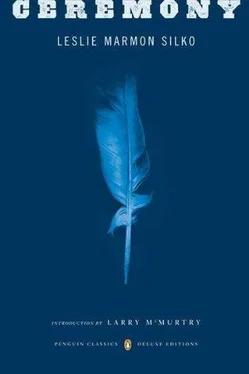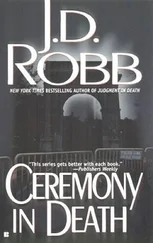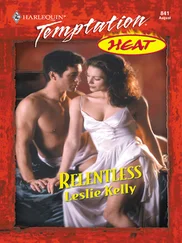He sat on the bed with his back against the whitewashed wall and watched tiny crystals in the gypsum plaster as they glittered in the stream of sun from the window. He relaxed now that the goats were loose and the yellow cat had her milk. As the sun went higher and left the eastern sky, the square of sunshine on the wall grew larger and diffuse, and the bright yellow color of early morning was gone. The tiny crystals disappeared gradually, the way stars did at dawn.
He knew at some point the sunlight on the wall would collapse into his thoughts like pale gray cobwebs, clinging to all things within him, and then his stomach would begin to convulse, and he would have to hold himself with both hands to try to hold back the tremor that grew inside. He went outside before it happened.
The wind was practicing with small gusts of hot air that fluttered the leaves on the elm tree in the yard. The wind was warming up for the afternoon, and within a few hours the sky over the valley would be dense with red dust, and along the ground the wind would catch waves of reddish sand and make them race across the dry red clay flats. The sky was hazy blue and it looked far away and uncertain, but he could remember times when he and Rocky had climbed Bone Mesa, high above the valley southwest of Mesita, and he had felt that the sky was near and that he could have touched it. He believed then that touching the sky had to do with where you were standing and how the clouds were that day. He had believed that on certain nights, when the moon rose full and wide as a corner of the sky, a person standing on the high sandstone cliff of that mesa could reach the moon. Distances and days existed in themselves then; they all had a story. They were not barriers. If a person wanted to get to the moon, there was a way; it all depended on whether you knew the directions — exactly which way to go and what to do to get there; it depended on whether you knew the story of how others before you had gone. He had believed in the stories for a long time, until the teachers at Indian school taught him not to believe in that kind of “nonsense.” But they had been wrong. Josiah had been there, in the jungle; he had come. Tayo had watched him die, and he had done nothing to save him.
Tayo was sitting under the elm tree in the shade when Harley came riding up on the black burro. The burro was veering hard to the right, attempting to turn around and go in the opposite direction; Harley had the rope reins of the hackamore pulled all the way to the left, so that the burro’s head was twisted around to the north, but the burro’s legs and body moved sideways and drifted toward the east. Harley had to stop the burro every few hundred yards to correct their direction. He swatted the burro across the rump with a black horsehair quirt, the kind the old Mexicans used to braid; dust from the burro’s hide flew up around Harley. Harley saw Tayo, and he tried to guide the burro to the tree, but it ignored the direction its head was aimed and walked sideways to the water trough and stopped. It stood there with its head up and a haughty look in its eyes; it waited until Harley was under the elm tree before it tasted the water.
“That burro sure hates you, Harley.”
Harley laughed. “Nobody ever rode it before, except maybe some of the kids when my dad had it over at Casa Blanca.”
“Does it buck?”
“It tries, but I think I’m too heavy for it. It doesn’t jump very high.” Harley was big and stocky. “My legs almost touch the ground anyway.”
Tayo smiled again. His mouth felt stiff at the corners. Harley had been at Wake Island with Leroy Valdez and Emo. They had all come back with Purple Hearts, but it didn’t seem as if the war had changed Harley; he was still a little fat, and he still made them laugh, joking and clowning.
“Hey! You don’t happen to have a beer, do you?”
Tayo shook his head. “There’s some coffee on the stove.”
“No, they say coffee is bad for you.” He laughed, and Tayo smiled because Harley didn’t use to like beer at all, and maybe this was something that was different about him now, after the war. He drank a lot of beer now. But Tayo could remember that time in the eighth grade when they had followed old Benny to see where he kept his wine. They watched him weave unsteadily through the salt bush down to the river willows and tamarics, growing along the river, all the while clutching his brown shopping bag close to his chest. They watched him take one last taste of the wine and push the cork in tight before he put it back in the bag, then carefully dig into the sandy riverbank, pushing white sand around the bag tenderly. They crouched with their chins on the sand and fallen willow leaves, peeking through the willows at him as he took a last look, as if to memorize the hiding place, and then walked crookedly up the hill, away from the river. They got to their feet then, and when Benny disappeared over the hill, they ran to the hiding place, where the river flowed into a quiet pool. Rocky and Tayo took the bottle of wine because there was only one bottle of beer.
“Okay for you, Harley,” Rocky said, “beer tastes awful.”
“Aw, you don’t know. You never tasted any,” Harley answered, trying to pry off the bottle cap with the short blade of his pocket knife.
“He’s right, Harley. Josiah let us taste some one time.”
The wine was sweet and sticky, a little like cough syrup, but they drank it anyway because they had to if they wanted to get drunk. Harley finally got the beer open, and he was anxious to catch up with them so he took a big swallow. He made a terrible face, wrinkling up his nose and rolling his eyes. He spent the rest of the afternoon spitting into the river, and they had to keep laughing because he kept saying, “Ugh! Awful! It tastes like poison!” And then he would spit again and try to wipe the inside of his mouth on the sleeve of his shirt.
Harley squatted down beside Tayo. He traced little figures in the dirt by his feet. Tayo closed his eyes and leaned back against the bottom of the tree; he flexed his feet out in front of him. They were quiet for a while. The wind was getting stronger; it made a whirling sound as it came around the southwest corner of the ranch house. A piece of old tin on the roof of the shed began to rattle. Tayo felt as if he could sleep, and maybe make up for the bad night before. There was a peaceful silence beneath the sounds of the wind; it was a silence with no trace of people. It was the silence of hard dry clay and old juniper wood bleached white.
But Harley was restless; Tayo could feel it. Harley kept wiping away the outlines he drew in the dirt and starting over again, angry that he couldn’t draw them the way he wanted them. Tayo brought his knees up in front of him and concentrated on staying awake. Harley grinned at him.
“We got it easy, huh? All the livestock down at Montaño and nothing for us war heroes to do but lay around and sleep all day.” He reached over and poked Tayo gently in the ribs when he said “war heroes.”
“I tried to go down there and help out, you know, when they first decided to move all the cattle and sheep down there. That was when you were still sick.” Harley shook his head. “Really, man, I tried to help. I told my old man, ‘Hey, let me do it. I promise I won’t mess up. Honest.’” Harley was drawing an intricate pattern in the dirt, moving his forefinger without pausing then.
“But you know what happened, so they don’t want me down there any more. They told me I could look after the ranch out here. Like you.” Harley looked up quickly to see Tayo’s face.
“You know what I mean, Tayo,” he said quickly, “you were really sick when you got back, and there isn’t a damn thing wrong with me.”
Tayo nodded, but he was thinking about what happened while Harley was at the Montaño herding sheep, and he wasn’t sure if Harley was right.
Читать дальше












